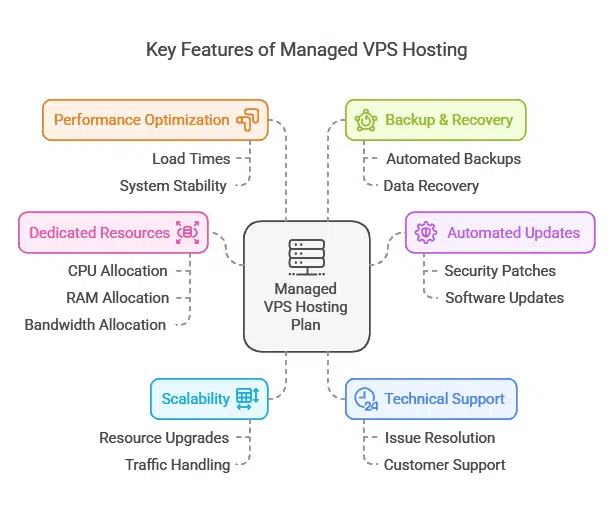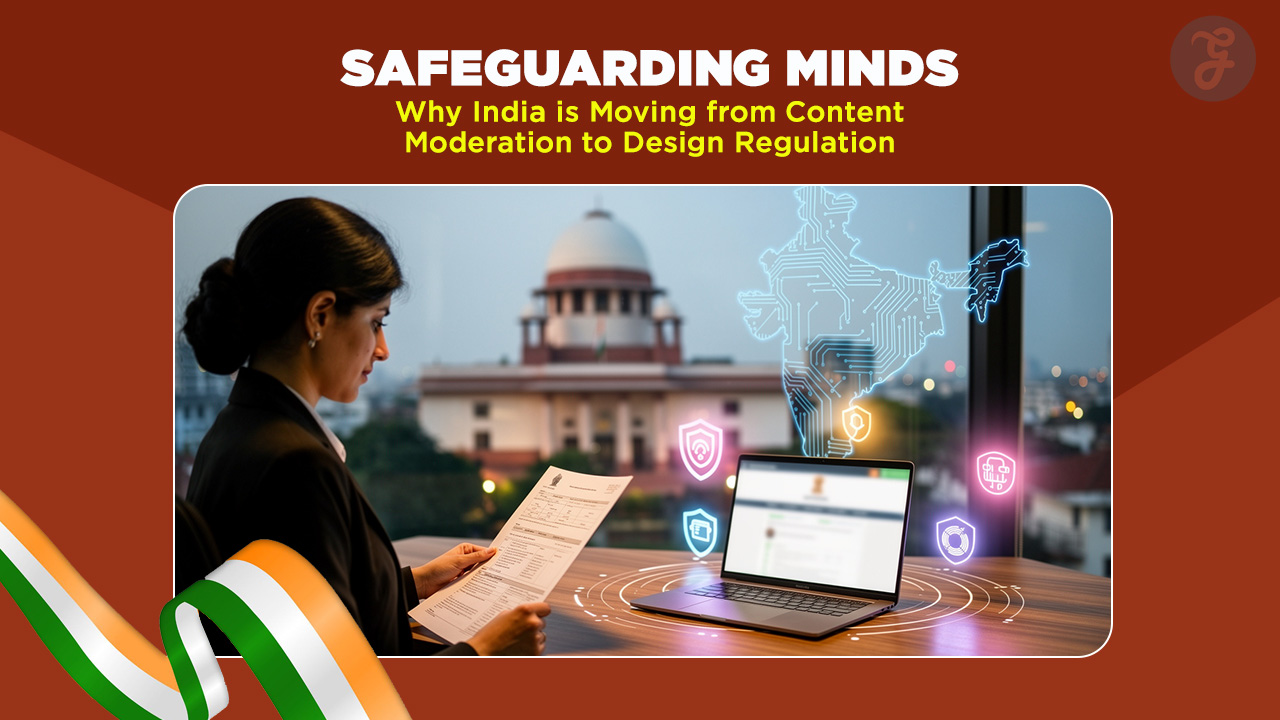Choosing the right hosting solution is crucial for the success of your website. If you’re currently using shared hosting and experiencing issues like slow speeds, frequent downtime, or security concerns, it may be time to upgrade.
A Managed VPS Hosting Plan offers better performance, security, and scalability, allowing your website to grow without limitations. But how do you know when it’s time to switch?
This article highlights five signs you need a Managed VPS Hosting Plan, helping you determine if an upgrade is necessary.
We’ll explore key factors, provide comparisons, and guide you in making the best decision for your website.
What Is a Managed VPS Hosting Plan?
A Managed VPS Hosting Plan is a Virtual Private Server (VPS) where the hosting provider takes care of server maintenance, security updates, and technical management.
Unlike shared hosting, a VPS allocates dedicated resources to your website, ensuring improved performance and reliability.
Key Features of a Managed VPS Hosting Plan
- Dedicated server resources – CPU, RAM, and bandwidth allocated specifically for your site.
- Automated updates & security patches – Reduces vulnerability to cyber threats.
- Scalability – Easily upgrade resources as your website grows.
- 24/7 technical support – Hosting provider handles server-related issues.
- Optimized performance – Faster load times and enhanced stability.
- Backup & Recovery – Regular automated backups ensure data protection.
Comparison: Shared Hosting vs. VPS Hosting vs. Dedicated Hosting
| Hosting Type | Performance | Security | Management | Best For |
| Shared Hosting | Low | Basic | Self-managed | Small websites & blogs |
| VPS Hosting | High | Advanced | Self/Managed | Growing businesses & apps |
| Dedicated Hosting | Very High | Premium | Self-managed | Enterprise-level projects |
If your website is struggling with performance issues, it might be one of the signs you need a Managed VPS Hosting Plan.
5 Signs You Need a Managed VPS Hosting Plan
A reliable website is essential for businesses, blogs, and online platforms. If your website experiences frequent issues, it might be an indication that your current hosting solution isn’t meeting your needs.
Upgrading to a managed VPS hosting plan ensures your site remains stable, secure, and performs efficiently.
1. Your Website Is Experiencing Frequent Downtime
Frequent downtime can severely impact user experience and search engine rankings. When your website is down, visitors are unable to access your content or services, leading to lost revenue and credibility.
How Downtime Affects Your Website
- Poor user experience – Visitors will leave if they frequently encounter errors.
- Lower search rankings – Google prioritizes websites with high uptime.
- Lost revenue – E-commerce stores and service-based websites lose potential customers.
| Impact of Downtime | Consequence | How a Managed VPS Helps |
| Frequent errors | Reduced traffic & conversions | Proactive server monitoring |
| Long response time | Poor SEO rankings | Optimized resource allocation |
| Website crashes | Loss of business credibility | High availability & redundancy |
How a Managed VPS Helps
A Managed VPS Hosting Plan ensures 99.9% uptime, reducing the risk of revenue loss and improving user experience. The provider actively monitors and maintains the server to prevent unexpected failures.
2. Your Website’s Loading Speed Is Slowing Down
Website speed is crucial for user engagement and search engine rankings. If your site takes more than 3 seconds to load, you risk losing visitors.
Why Slow Speeds Occur on Shared Hosting
- Resource limitations – Shared servers divide CPU and RAM among multiple websites.
- Increased traffic – A sudden spike can overload a shared server.
- Poor server configurations – Unoptimized hosting can result in laggy performance.
| Performance Factor | Shared Hosting | Managed VPS |
| Speed | Slow | Fast |
| Resource allocation | Shared | Dedicated |
| Scalability | Limited | High |
| Optimization | Generic | Custom-tuned |
How a Managed VPS Helps
A Managed VPS Hosting Plan offers dedicated resources, ensuring faster load times. Additional benefits include:
- SSD storage for improved data retrieval speeds.
- Optimized caching to reduce server response time.
- Custom configurations to enhance website performance.
If your website is sluggish, it’s one of the signs you need a Managed VPS Hosting Plan to enhance speed and efficiency.
3. You’re Facing Security Threats and Cyberattacks
Cyber threats are increasing, and shared hosting offers minimal security. If your website is vulnerable to DDoS attacks, malware, or hacking attempts, it’s a sign you need better protection.
Common Security Risks on Shared Hosting
- DDoS attacks – Hackers flood your site with traffic, causing crashes.
- Malware infections – Websites can get blacklisted due to compromised files.
- Weak data protection – Shared hosting lacks advanced firewalls and encryption.
| Threat Type | Risk Level | Protection on Managed VPS |
| DDoS Attacks | High | Advanced firewalls |
| Malware Infections | Medium | Automated scanning |
| Data Breaches | High | Secure backups & encryption |
How a Managed VPS Helps
A Managed VPS Hosting Plan includes:
- Advanced firewalls & DDoS protection to prevent cyberattacks.
- Automated malware scanning for continuous security monitoring.
- Regular backups to restore data in case of breaches.
If security is a concern, it’s one of the strongest signs you need a Managed VPS Hosting Plan.
4. You’re Outgrowing Shared Hosting Resources
As your website grows, shared hosting may no longer meet your needs. High traffic, complex applications, and increased data usage demand more server resources.
How to Know If You’ve Outgrown Shared Hosting?
- CPU usage frequently exceeds limits.
- Visitors experience slow load times.
- Running resource-heavy applications like eCommerce stores or forums.
| Resource Need | Shared Hosting | Managed VPS |
| High traffic | Limited | Scalable |
| CPU & RAM | Restricted | Dedicated |
| Performance | Unstable | Optimized |
| Custom applications | Limited | Supported |
How a Managed VPS Helps
With a Managed VPS Hosting Plan, you can scale resources on demand, ensuring seamless performance even as traffic increases.
5. You Lack Technical Expertise for Server Management
Managing a server requires time and expertise. If you lack the skills to configure security patches, software updates, and performance optimizations, a Managed VPS is the ideal solution.
How a Managed VPS Helps
With a Managed VPS Hosting Plan, the hosting provider takes care of:
- 24/7 server monitoring and maintenance.
- Automatic updates to prevent security vulnerabilities.
- Technical support to resolve issues quickly.
- Performance tuning for optimal speed and reliability.
If managing your hosting is overwhelming, it’s another one of the signs you need a Managed VPS Hosting Plan.
How to Choose the Best Managed VPS Hosting Plan?
1. Server Resources and Performance Needs
- Look for plans with sufficient CPU, RAM, and bandwidth.
- Consider SSD storage for faster data access.
2. Strong Security and Backup Features
- Choose a provider offering DDoS protection, malware scanning, and automatic backups.
3. Customer Support and SLA Guarantees
- Ensure 24/7 support with a strong Service Level Agreement (SLA).
Takeaways
If your website is experiencing downtime, slow loading speeds, security threats, or resource limitations, these are clear signs you need a Managed VPS Hosting Plan.
Upgrading ensures better performance, security, and scalability, allowing your business to grow without hosting-related issues.
Take Action Today
- Assess your current hosting limitations.
- Compare Managed VPS plans based on resources, security, and support.
- Choose a provider that aligns with your website’s needs.
A Managed VPS Hosting Plan is an investment in your website’s future. Make the switch today and experience the benefits of faster speeds, enhanced security, and professional support.








































